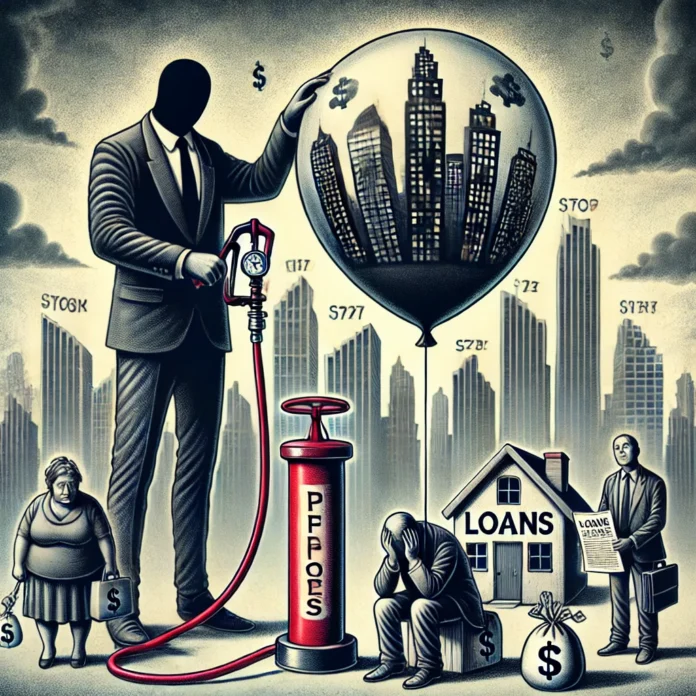In the world of real estate investing, success stories often go hand in hand with darker tales of exploitation and manipulation. Names like René Benko have become synonymous with practices that not only undermined trust in the financial system but also destabilized housing markets. How were such schemes possible, and why did the system fail to stop them?
Gaming the System: The Strategy Behind the Scams
Speculators like René Bänke systematically exploited loopholes in credit systems and regulatory frameworks. Their approach relied on inflated property valuations, fabricated income statements, and opaque business models. The strategy was simple yet devastating:
- Inflating Property Values
By working with cooperative appraisers, properties were often valued far above their actual worth. This allowed speculators to secure larger loans than the properties justified. - Reckless Borrowing
Using falsified documents, exaggerated income claims, or dubious financing structures, speculators secured loans. Banks, eager for quick deals and commissions, often conducted minimal due diligence. - Selling to Uninformed Investors
Once the properties were overvalued and burdened with large loans, they were sold to unsuspecting private or institutional investors, often at inflated prices. The speculators walked away with profits, leaving the new owners with unsustainable debt. - Offloading Risk Through Credit Bundling
Many banks bundled these questionable loans into mortgage-backed securities and sold them to third parties, effectively passing on the risk while securing their own profits.
Why Was This Possible?
The system’s vulnerabilities can be attributed to several factors:
- Lax Regulation
Regulatory bodies failed to effectively monitor the practices of appraisers, lenders, and speculators. Loopholes in property valuation and credit approval processes were exploited with ease. - Profit-Driven Banking
Financial institutions prioritized growth and profits over risk management. They assumed rising property prices would offset any potential defaults, fueling reckless lending. - Lack of Transparency
The complexity of financial instruments and the opaque nature of credit trading made it difficult for even seasoned professionals to assess the true risks involved. - Systematic Corruption
In some cases, appraisers, brokers, and lenders knowingly collaborated to maximize their own gains at the expense of market stability. These networks enabled speculators like René Bänke to exploit the system without consequences.
Consequences for the Market and Society
The actions of speculators like Bänke had far-reaching impacts:
- Unaffordable Housing: Artificially inflated prices made it impossible for ordinary families to afford homes.
- Banking Crises and Losses: When the speculative bubbles burst, banks and investors faced massive losses.
- Erosion of Trust: Revelations of widespread manipulation severely damaged public confidence in the financial and real estate sectors.
Preventing Future Exploitation
To prevent similar schemes, systemic reforms are essential:
- Stronger Regulation: Independent oversight of property valuations and loan approvals must be enforced.
- Increased Transparency: Financial institutions should disclose credit allocation and secondary market trading.
- Harsher Penalties: Speculators and their accomplices must face severe consequences for proven manipulation.
- Education for Investors: Greater awareness of market risks and dynamics is critical for both private and institutional investors.
Conclusion
The case of René Benko highlights how easily unscrupulous speculators can exploit a flawed system—at the expense of investors, banks, and society as a whole. It is up to policymakers, regulators, and the public to ensure that such practices are curtailed, creating a fair and stable market that prioritizes integrity over greed.





